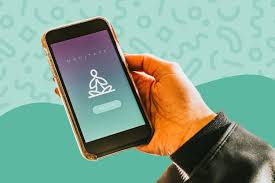
Mental Wellness Apps: Which Ones Actually Work?
Mental wellness apps have gained widespread popularity for their ability to provide accessible mental health support. Apps like Headspace, Calm, and BetterHelp offer guided meditation, stress management, and professional therapy, making them effective for enhancing mental well-being. Moodpath and Pacifica help users track moods and address anxiety and depression, while Wysa provides AI-powered emotional support. Insight Timer and MyStrength offer mindfulness and resilience-building tools. Happif
✨ Raghav Jain

Introduction
In today’s fast-paced world, mental health has become a growing concern. With stress, anxiety, and depression affecting millions worldwide, people are increasingly turning to digital solutions to manage their mental well-being. One such solution that has gained massive popularity in recent years is mental wellness apps.
From meditation to cognitive behavioral therapy (CBT), these apps offer a range of tools designed to help users navigate their mental health struggles. However, with so many options available, it can be overwhelming to figure out which ones actually work and offer real value.
This article explores the most popular mental wellness apps, how they function, and whether they truly live up to their promises. Let’s dive into the apps that are making a difference and see which ones deserve a spot on your phone for improving mental wellness. The year 2025 finds us immersed in a digital landscape where mental well-being has rightfully taken center stage, leading to an explosion in the availability and sophistication of mental wellness applications designed to support individuals in navigating the complexities of their emotional and psychological lives. This burgeoning market promises accessible and convenient tools for managing stress, anxiety, depression, sleep issues, and fostering overall mental resilience, yet the crucial question remains: which of these myriad apps actually deliver on their promises and provide tangible benefits? This exploration delves into the landscape of mental wellness apps in 2025, examining the key features, the scientific evidence (or lack thereof) supporting their effectiveness, and highlighting some of the top contenders that have demonstrated potential in promoting positive mental health outcomes, while also cautioning against the pitfalls and the importance of discerning between genuinely helpful tools and those that may fall short or even pose risks. The proliferation of these apps stems from a confluence of factors, including increased awareness of mental health, the convenience and anonymity offered by digital platforms, and the potential to scale mental health support beyond traditional in-person therapy, yet this rapid growth necessitates a critical evaluation of their efficacy and the methodologies employed to validate their claims, as the digital marketplace is flooded with apps boasting various features ranging from guided meditations and mindfulness exercises to cognitive behavioral therapy (CBT) techniques, mood tracking, journaling prompts, and even AI-powered chatbots offering emotional support, making it challenging for users to discern which ones are truly evidence-based and likely to produce positive results. Examining the scientific evidence reveals a mixed landscape, with some apps having undergone rigorous testing and demonstrating efficacy in reducing symptoms of anxiety and depression, improving sleep quality, and enhancing mindfulness, often employing established therapeutic modalities adapted for digital delivery, while others lack robust scientific validation, relying instead on anecdotal evidence or generic wellness content, highlighting the importance of seeking out apps that are developed in collaboration with mental health professionals and have published research supporting their claims, as the "digital placebo effect," where users experience symptom relief simply because they are using an app, regardless of its specific content or features, can also contribute to positive self-reported outcomes, further underscoring the need for objective, controlled studies. Among the mental wellness apps that have garnered attention and some empirical support in 2025 are platforms like Headspace and Calm, primarily known for their extensive libraries of guided meditations and mindfulness exercises, with studies suggesting their effectiveness in reducing stress and improving focus, often incorporating features like sleep stories and ambient soundscapes to promote relaxation and better sleep, while apps like Sanvello and MindShift CBT offer tools and techniques rooted in cognitive behavioral therapy, providing users with strategies to manage anxiety, challenge negative thought patterns, and develop coping mechanisms, sometimes including features like mood tracking and goal setting to enhance self-awareness and promote behavioral change. Furthermore, the integration of artificial intelligence (AI) in mental wellness apps is becoming increasingly prevalent, with AI-powered chatbots like Wysa offering 24/7 emotional support, engaging users in conversations, and providing access to CBT-based exercises and mindfulness activities, with some research suggesting that these AI companions can be helpful in managing mild to moderate symptoms of anxiety and depression, particularly by offering immediate and anonymous support, although the ethical considerations and the limitations of AI in providing complex therapeutic interventions remain important points of discussion. Apps focusing on specific mental health concerns are also emerging, such as those designed to support individuals with PTSD (like PTSD Coach) or to aid in managing the urge to self-harm (like Calm Harm), often developed in collaboration with clinical experts and offering tailored tools and resources, while the increasing recognition of the unique mental health needs of specific populations has led to the development of apps like Peri for women navigating perimenopause, offering symptom tracking and personalized insights, highlighting the trend towards more specialized and targeted mental wellness support. However, alongside these promising developments, it is crucial to acknowledge the potential downsides and limitations of mental wellness apps, including the risk of over-reliance on self-diagnosis and self-treatment, potentially delaying or replacing the need for professional help when indicated, the variability in the quality and accuracy of information provided, and concerns regarding data privacy and security, as these apps often collect sensitive personal and health information, necessitating transparent and robust data protection policies. Moreover, the issue of user engagement and adherence remains a significant challenge, as individuals may initially download and use these apps but struggle to maintain consistent engagement over time, limiting their potential benefits, underscoring the importance of app design that prioritizes user-friendliness, personalization, and features that promote sustained use, such as gamification, reminders, and community support (where appropriate and anonymized). Therefore, in navigating the landscape of mental wellness apps in 2025, it is essential for users to adopt a discerning approach, seeking out apps that are transparent about their development process, cite scientific evidence for their effectiveness, are developed or endorsed by reputable mental health organizations or professionals, and prioritize user privacy and data security, recognizing that while these apps can be valuable tools for self-management and support, they are not a substitute for professional mental health care when needed, and a balanced approach that integrates digital resources with traditional therapy and other forms of support may be the most effective path towards holistic mental well-being.
What Are Mental Wellness Apps?
Mental wellness apps are mobile applications designed to help users improve their mental health and overall well-being. These apps provide tools and resources aimed at:
- Managing stress
- Reducing anxiety
- Enhancing mood
- Improving sleep
- Developing positive mental habits
Mental wellness apps come in various forms, ranging from guided meditation and mindfulness exercises to comprehensive therapy-based tools. They are built on a range of approaches, including relaxation techniques, self-help tools, and professional therapy.
The rise of these apps coincides with a growing awareness of the importance of mental health, as well as the need for accessible, affordable options for those seeking help outside of traditional therapy.
Top Mental Wellness Apps: Which Ones Actually Work?
With a growing selection of mental wellness apps, it’s essential to focus on those that provide the best and most effective features. Let’s look at some of the top contenders in the wellness app market and evaluate their benefits and limitations.
1. Calm
What It Offers:
Calm is one of the most well-known apps in the meditation and relaxation space. It provides users with guided meditations, sleep stories, breathing exercises, and even soothing music. Calm is designed to reduce anxiety, improve sleep quality, and enhance mindfulness.
How It Works:
The app offers a variety of programs aimed at specific goals, such as reducing anxiety, stress relief, and improving focus. For example, Calm’s sleep stories have become widely popular, with calming narrations designed to lull users into restful sleep.
Does It Work?
Calm has been shown to help people improve their sleep quality and reduce anxiety through its guided meditations. It’s a good choice for individuals who need a tool for relaxation and mindfulness but might not want a structured therapy-based approach.
Pros:
- Variety of features (meditation, sleep stories, music)
- Beautiful design and user experience
- Great for relaxation and sleep improvement
Cons:
- Premium features require a subscription
- Limited focus on long-term mental health strategies
2. Headspace
What It Offers:
Headspace is a meditation and mindfulness app designed to help users manage stress, improve focus, and reduce anxiety. It’s known for its easy-to-follow guided meditations and its structured courses on mindfulness and well-being.
How It Works:
Headspace offers a 10-day introductory course to teach the basics of meditation. It then expands into a variety of meditation programs, including ones focused on stress relief, sleep improvement, and mindful eating. The app also offers themed sessions to help users build mental resilience and develop coping skills.
Does It Work?
Headspace has received praise for its simplicity and effectiveness in reducing stress and anxiety. Scientific studies have shown that regular meditation practice using Headspace can improve mental clarity, emotional regulation, and overall well-being.
Pros:
- Guided meditation with a variety of themes
- User-friendly interface
- Comprehensive beginner courses
Cons:
- Full access requires a subscription
- Limited offerings for deep therapeutic work
3. BetterHelp
What It Offers:
BetterHelp is an online therapy platform that connects users with licensed therapists via text, video, and phone sessions. Unlike other wellness apps focused on self-guided strategies, BetterHelp is designed to offer professional mental health support in a more accessible and convenient format.
How It Works:
After filling out an initial questionnaire to match users with a therapist, BetterHelp provides users with ongoing counseling through various mediums. It is perfect for individuals who want more personalized mental health support but can’t commit to traditional face-to-face therapy.
Does It Work?
BetterHelp has gained popularity for offering a more affordable and flexible alternative to traditional therapy. Research suggests that online therapy can be just as effective as in-person counseling for many mental health conditions, including depression, anxiety, and relationship issues.
Pros:
- Access to licensed therapists
- Flexible communication options (video, text, phone)
- More affordable than in-person therapy
Cons:
- No in-person therapy options
- It’s more expensive than other self-help apps
4. MyPossibleSelf
What It Offers:
MyPossibleSelf is a mental health app that focuses on helping users develop positive mental habits and build resilience. It offers a range of self-help tools, such as mood tracking, self-assessment quizzes, and goal-setting features.
How It Works:
The app provides users with personalized self-help tools based on their mood, stress levels, and mental health goals. It also offers CBT-based exercises to help users reframe negative thoughts and build better coping strategies.
Does It Work?
Research suggests that CBT can be highly effective for treating conditions like anxiety and depression, and MyPossibleSelf offers practical tools based on this evidence-based approach. It’s a good choice for those who want a structured, therapeutic approach to mental wellness.
Pros:
- CBT-based tools for emotional regulation
- Personalized mood tracking
- Affordable and accessible
Cons:
- Some features require in-app purchases
- Limited options for live therapy sessions
5. Moodpath
What It Offers:
Moodpath is a mental health app that helps users track their mood over time, identifying potential signs of depression and anxiety. It provides daily mood assessments, personalized insights, and a variety of self-help exercises based on the user’s mental health profile.
How It Works:
Moodpath offers a daily check-in feature that helps users track their mental health symptoms. Based on their answers, the app generates insights and offers exercises to manage stress and anxiety.
Does It Work?
Moodpath is a valuable tool for self-monitoring and identifying early signs of mental health issues. However, it doesn’t replace professional mental health treatment. For people struggling with mild symptoms, it provides practical tools for managing emotions.
Pros:
- Daily mood assessments and personalized feedback
- Provides useful coping strategies
- A solid starting point for self-awareness
Cons:
- Limited therapy resources
- Doesn’t provide live counseling options
6. Sanvello
What It Offers:
Sanvello is a comprehensive mental wellness app that combines CBT, mindfulness, and relaxation techniques to help users manage stress, anxiety, and depression. It offers guided journeys, mood tracking, and a supportive community to help users stay motivated and engaged.
How It Works:
Sanvello provides users with structured mental health programs and goal-setting features to build better habits. It also offers on-demand relaxation exercises and mindfulness practices tailored to the user’s needs.
Does It Work?
Sanvello is backed by research and is known for its practical, evidence-based tools for self-improvement. Many users have reported improvements in their mental well-being through the app’s personalized features.
Pros:
- Evidence-based CBT and mindfulness tools
- Customizable programs for various mental health goals
- Free access to core features
Cons:
- Premium features require a subscription
- May not be as comprehensive as in-person therapy
Conclusion
With an increasing number of mental wellness apps on the market, finding the one that works best for you can feel like a daunting task. However, the apps we’ve covered here—Calm, Headspace, BetterHelp, MyPossibleSelf, Moodpath, and Sanvello—all offer unique features and benefits that cater to different mental health needs.
Which one works?
It depends on your personal goals. If you're looking for relaxation and sleep improvement, Calm or Headspace might be ideal. If you're in need of professional guidance, BetterHelp provides access to licensed therapists. For a more therapeutic, structured approach, MyPossibleSelf and Sanvello offer CBT-based tools for mental wellness.
Ultimately, these apps can be incredibly effective in improving mental well-being when used consistently. While they can’t replace professional therapy for severe conditions, they offer valuable support for everyday mental health challenges.
Q&A Section
Q1: What are mental wellness apps and why are they gaining popularity?
Ans: Mental wellness apps are digital tools designed to help individuals manage stress, anxiety, and other mental health issues. They offer resources like meditation, mood tracking, and mindfulness exercises, contributing to growing awareness and self-care practices.
Q2: What is the effectiveness of Headspace in improving mental well-being?
Ans: Headspace is a popular meditation app that offers guided sessions for stress relief, improved focus, and relaxation. Research indicates it can reduce anxiety and promote emotional well-being, making it effective for many users.
Q3: How does Calm help users with stress and sleep issues?
Ans: Calm provides guided meditation, sleep stories, breathing exercises, and relaxation music to alleviate stress and improve sleep quality. Many users report better sleep and reduced anxiety after using the app regularly.
Q4: What features make BetterHelp a reliable mental wellness app?
Ans: BetterHelp connects users with licensed therapists for online counseling. It offers flexibility with communication through text, video, or phone calls. Many users find it effective for managing mental health through professional support.
Q5: How does the app Moodpath assist with mental health tracking?
Ans: Moodpath tracks mood patterns, sleep, and physical activity to help users understand their mental health over time. It provides insights and offers mental health assessments, which can be beneficial for early intervention and support.
Q6: What role does Pacifica play in managing anxiety and depression?
Ans: Pacifica offers tools for managing anxiety, depression, and stress through cognitive behavioral therapy (CBT) techniques. It includes mood tracking, guided meditation, and relaxation exercises, making it useful for individuals seeking self-help methods.
Q7: Can Insight Timer really improve mindfulness and emotional well-being?
Ans: Insight Timer offers a vast library of guided meditations, music, and talks from mindfulness experts. It helps individuals practice mindfulness and relaxation techniques, contributing to improved emotional well-being and reduced stress.
Q8: How does Wysa support users dealing with emotional challenges?
Ans: Wysa is an AI-powered chatbot designed to provide mental health support by offering mood tracking, coping exercises, and personalized self-care tools. It’s a helpful app for those looking for immediate, accessible emotional support.
Q9: What makes MyStrength an effective app for building resilience?
Ans: MyStrength uses personalized programs that combine cognitive behavioral therapy, mindfulness, and positive psychology. It’s designed to help users build resilience, cope with challenges, and improve their mental well-being over time.
Q10: How do apps like Happify use science to improve mental health?
Ans: Happify uses evidence-based activities, such as games and exercises, to improve mood, reduce stress, and build resilience. The app applies positive psychology principles to help users cultivate happiness and well-being.
Similar Articles
Find more relatable content in similar Articles

Wearable Health Sensors: The D..
Wearable health sensors are re.. Read More

Digital DNA: The Ethics of Gen..
Digital DNA—the digitization a.. Read More

Protecting Kids in the Digital..
In an increasingly connected w.. Read More

Data Centers and the Planet: M..
As cloud computing becomes the.. Read More
Explore Other Categories
Explore many different categories of articles ranging from Gadgets to Security
Smart Devices, Gear & Innovations
Discover in-depth reviews, hands-on experiences, and expert insights on the newest gadgets—from smartphones to smartwatches, headphones, wearables, and everything in between. Stay ahead with the latest in tech gear
Apps That Power Your World
Explore essential mobile and desktop applications across all platforms. From productivity boosters to creative tools, we cover updates, recommendations, and how-tos to make your digital life easier and more efficient.
Tomorrow's Technology, Today's Insights
Dive into the world of emerging technologies, AI breakthroughs, space tech, robotics, and innovations shaping the future. Stay informed on what's next in the evolution of science and technology.
Protecting You in a Digital Age
Learn how to secure your data, protect your privacy, and understand the latest in online threats. We break down complex cybersecurity topics into practical advice for everyday users and professionals alike.
© 2025 Copyrights by rTechnology. All Rights Reserved.